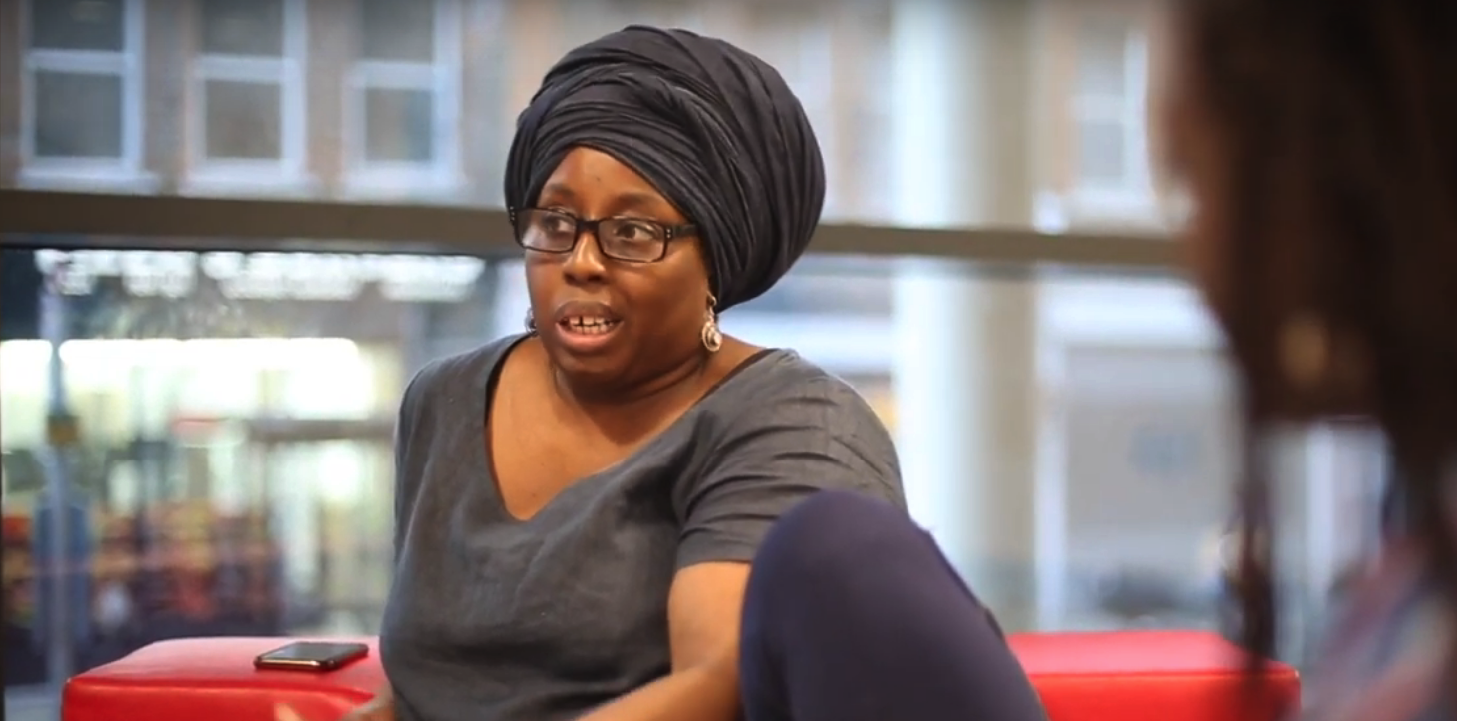IT’S ALWAYS important to have an outlet. For some, they get there release by pumping iron at the gym and for others it might be developing the mind body and soul through yoga. But there is one form that is often rarely explored in the black community – and that is therapy.
While we are seeing more positive discussions surrounding black people and mental health, there are still pockets of the community that see therapy as taboo.
Three women who are trying to tackle this is Sarah Colbourne, Adeola Russell and Angela Nagawa-Anosike – the women behind crowdfunding project Black Therapy Matters.
We spoke to the three ladies to find out more about the cause and how we as a community can help.
Q: Tell our readers more about the organisation and just why black therapy matters
A: We are three psychotherapy students based in London; all women of colour already active in helping our communities. Black therapy matters because race matters and the therapy process is about mental health – finding ways to come to terms, to move forward and to find peace with your reality.
A report from 2013 released by mental health charity Mind, for the We Still Need To Talk coalition – Access
To Talking Therapies – found that only one in ten people felt that their cultural needs weren’t taken into account by the psychological support service they were offered.
Q: What brought you three women together?
A: As women of colour, we were a significant minority on our psychotherapy foundation training course. We met with other students of colour in an in-house forum initially. However, we continued to meet outside of this forum more regularly, to provide each other with support, as the fact of our differences began to take its toll on our training experience.
We agree with Taylor-Smith (2004) who wrote of the experiences of people of colour while training as therapists. She said “…it seemed that the behaviour of the tutors and the students changed whenever the black students raised issues around race and cultural differences…”
We found that we were very different in our backgrounds and outlook, but our lived experiences helped us relate on common ground. Between us, we have a varied range of interests including identity, family therapy, group therapy and trauma, all from a relational perspective.
We believe that:
• Our community should be supported with more good quality BME counselling and therapeutic care.
• The stigma and stereotypes that represent barriers to access therapy training and therapy support should be tackled head on.
• An effective local counselling and therapeutic service should seek to engage the community in its practice

Q: Would you say there is a stigma attached to mental health within the black community? If so, why, and how can we tackle that?
A: We believe that there is a mental health stigma attached to most ethnic groups. Reconciling a mental ‘difference’ on top of our racial difference in the UK is for some, a step too far away from an acceptable ‘normal’.
We find ourselves battling and grappling with labels and the ways in which we have to relate to a world that at times seems alien – in an attempt to be heard, to be seen, to be accepted or approved of. When we don’t fit into this moulded and distorted way of being, we feel shamed and ridiculed.
There are nationwide campaigns such as ‘Time to Change’ that offer resources on how to change our thinking on mental health, but we would like to approach a collaborative solution from a local perspective.
We believe that more qualified therapists of colour can start to heal the intergenerational trauma in our community that has led to a profound mistrust of therapy and counselling services and a view that therapy is inaccessible and ineffective.
Q: In what way do you hope to give back to your community?
A: We have so many ideas about what we will do when we qualify and are ready to set up practice, however our overall intentions remain:
• We would like to improve access to therapy training in the UK, for people of colour.
• We want to mentor and support more therapists of colour to qualify and help deal with the growing mental health crisis in our community.
• We want to change the local narrative around mental health and therapy.
Q: How do you hope to utilise your donations?
A: We must get ourselves funded to qualify as psychotherapists in order to make our ambition a reality. This year we hope to raise at least £20,000 to cover some of the costs of completing our first year of training. Any funds raised as surplus to our training will be used to keep the fund going for other students long after we qualify.

Q: Other than donate, how can people help?
A: Donate to our fund here today or share our crowdfunding page on your social media channels. You can follow us and share our campaign on Twitter and Facebook tagging us – @blacktherapyuk or using the hashtag #BlackTherapyMatters.
We also have a quarterly newsletter which readers can subscribe to and I encourage people to speak with family and friends and engage in the conversation!


Comments Form
2 Comments
Meet the three women showing us why black therapists matter – Voice Online https://www.voice-online.co.uk/lifestyle/health-wellbeing/2019/10/05/meet-the-three-women-showing-us-why-black-therapists-matter/#.XZzTltXt-D4.twitter I strongly believe there’s need for culturally sensitive therapy. Here’s my story https://adventistradio.london/podcast/grace-prendergast/ @floGrace2
I am a counselling student of colour.